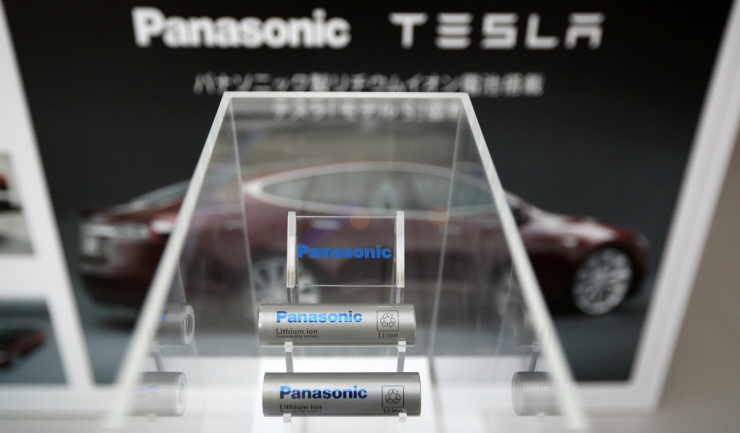The spring of traditional household appliances enterprises has passed and it is difficult to re-emerge ten years ago. Therefore, it is difficult to maintain high performance in the long run.
On the evening of August 18th, Gree Company issued 35 announcements after suspending the license for six months, occupying the “board†of the Shenzhen Stock Exchange. In addition to the increase in quotas, employee stocks, and mid-year reports, the most compelling concern is that Gree announced the acquisition of Zhuhai Yinlong. According to reports, Gree plans to acquire 100% equity of Zhuhai Yinlong by issuing shares at a transaction price of 13 billion yuan. After the acquisition is completed, Zhuhai Yinlong will become a wholly-owned subsidiary of Gree Electric Appliances and will be included in the scope of Gree Electric's consolidated statements.

People in the industry believe that this is the real beginning of Gree’s transformation and one of the signs of the collective transformation of the home appliance industry.
Home appliance giants struggle to transformThis is not the first time that Miss Dong has been pondering the transformation.
Putting down the joke about "getting GE" and "one billion yuan", the introduction of mobile phones is a test of Gree's desire to transform itself, trying to break away from the public's impression of "selling air-conditioning," but this attempt can be said. Has failed. Not to mention Gree's good phone sales, the entire smart phone industry has become "home appliances", there is nothing to be a stroke, so Gree's efforts may be the redemption of failure.
In addition to Gree, its old rival, Midea, also sought a transformation long ago, but the road is very different from that of Gree. Instead of single-handedly tapping into unfamiliar areas of intelligent hardware, Midea chose to acquire KUKA, a world-renowned industrial robot company. First complement their own fundamental transformation in industry and production.
Changhong Group, one of the domestic appliance industry giants, recently signed a strategic cooperation contract with the famous Swiss multinational company ABB and set up a joint laboratory for robot applications. It also stated that both parties will focus on the field of industrial robots in application, development, production, and systems. Intensive cooperation in areas such as integration......
Ways to seek transformationThe collective embarrassment of the home appliance industry has made these industry giants feel full of crisis. In the transition of giants, the players competing in one area fled in the direction of transformation. It can be roughly divided into four categories.
Smart home
These giants have fought for more than ten years or even decades in the home appliance industry. How to seek diversified development, the most familiar of them is still in the home appliance industry. To seek transformation, smart home is undoubtedly the first choice.
As early as the end of 2014, Midea Group issued a private placement of 55 million shares to Xiaomi Technology at a price of 23.01 yuan per share, and raised no more than 1.266 billion yuan. After the issuance, Xiaomi Technology will hold a 1.29% stake in Midea and nominate a core executive to be a group director of Midea. The two parties will cooperate in depth in the areas of smart homes, their ecological chains, and mobile Internet businesses. Midea also counts for others who want to transform themselves. The giants of smart homes have made a difference. Nevertheless, Midea did not launch a specific product or project for this cooperation.

In the 2015 Home Fair, Haier launched an intelligent platform U+, claiming that all smart new products can be built on a unified smart platform. In March of this year, Haier released products such as "smart kitchens" and "smart bathrooms". The goal is to provide users with automated services that allow users to experience smart life services without excessive operations. This kind of precision strike transformation may be a clear direction for the home appliance industry.
medical health
As the largest color TV manufacturer in China, Hisense's consumer impression of its brand is still on the color TV refrigerator washing machine, but in fact, Hisense has long been in the business of transportation, communications, radio and television and other business, and, Hisense also Started to learn from GE, the world’s home appliance giant, and transform into medical electronics. In December last year, Hisense held a media conference on precision medical technology in Beijing, announcing further transformation of the technology company and the release of two medical devices: Hisense Computer Assisted Surgery (CAS) and Hisense SID (Surgical Intelligent). Display system).
Coincidentally, TCL also began to deploy its medical electronics business as early as 2012. The company's medical electronics and medical imaging diagnostic equipment are its core business, providing medical magnetic resonance imaging systems, CT, digital X-ray diagnostic equipment, X-ray intervention equipment, and medical applications. Ultrasound diagnostic equipment and other products related to medical imaging and system solutions, etc., are considered home appliance giants involved in one of the most extensive medical industry.
Doing supplier
Today's Japanese-branded mobile phones have faded out of our lives, but most of the mobile phone cameras are produced by Sony. Half of the components of the popular iPhone have come from Japanese manufacturers.
Panasonic, Sony, Sharp and other veteran home appliance manufacturers have long played down the “home appliances†label through diversified operations for many years. When the overall home appliance industry is rampant, these giants can inject new vigor into their technology accumulation for many years, and their competitiveness is very high. The high zero-device business is also growing.
High-tech
In twenty or thirty years, these home appliance companies are also linked to “high-tech companiesâ€. However, these years of technological development has reached a geometric speed, and home appliances have become almost like chairs and benches. In the course of development, many home appliance companies have already started the transition silently, with the Japanese home appliance industry as the head, and they all seek to get rid of the "home appliance company" label. They all aimed their attention at new energy and artificial intelligence.
Among the Japanese household electrical appliance companies, the most typical example of this transformation was Panasonic. Panasonic first acquired Sanyo Electronics, Japan’s most expensive lithium battery company, and then it gained a lot in the new energy field. The famous case was that it became popular all over the world. The new energy car manufacturer Tesla's battery supplier.

Sony Corporation has been focusing on artificial intelligence business. Since many years ago, it began to constantly start the development of robots. At the end of June this year, Sony held a business policy briefing in Tokyo, announcing that it had started to develop robots based on artificial intelligence (AI) technology, and in July established the “Sony Innovation Fund†to invest in companies that conduct AI and robot R&D. The scale of funds is 10 billion yen.
In addition to the Japanese system, we must mention the main character of today's news - Gree. According to analysts in the industry, the acquisition of Yinlong was not to consider entering the passenger car field, but rather to take advantage of the advantages of Yinlong lithium titanate power battery and energy storage battery, that is, Gree. Want to focus on its transformation through new energy.
Transformation is an inevitable trendFive to six decades ago, the home appliance industry had always been dominated by the United States. However, the rise of Japan gradually replaced the United States. Later, South Korea and China quickly developed and gradually replaced Japan. After years of precipitation, a large number of home appliance giants have been clustered in Asia. However, with the impact of Internet products in the past decade or so, the potential of these giants is already worse than before, losses, layoffs, and acquisitions. It seems that they have fallen into a dilemma. Although the development is not smooth, these giants still have a lot of body and huge amounts of money. If the strategy for the transition period is properly applied, it may be through this difficult period. If there is no pledge, the transformation will not be effective. Shun, in the face of the Internet business environment that is now replacing shuffles so quickly, a giant collapses and it is a moment of landslide. Frankly speaking, the transformation of these home appliance giants is a collective exodus, and success or failure will have to look at the future.
Recommended reading
Gree's acquisition of Yinlong new energy dust settled. Will it enter the auto industry in the future?